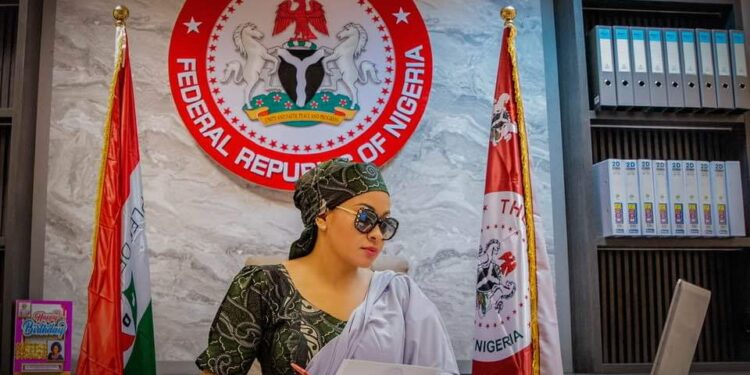Sen. Natasha Akpoti-Uduaghan (PDP-Kogi) has urged Christians across the country to imbibe the love and humility demonstrated by Jesus Christ to create impact in people’s lives during the yuletide and beyond.
The lawmaker, representing Kogi Central Senatorial District, made the urge on Sunday in her Christmas message to Nigerians issued in Lokoja by her Media Aide, Arogbonlo Israel.
While felicitating with Christian faithful and all Nigerians celebrating Christmas and New Year festivities, said love and humility brought about peaceful coexistence for growth and development in any society.
Akpoti-Uduaghan lauded Nigerians for their resilience in the face of the challenges of the nation, “but we must embrace love, humility and unity to wither the storm.
“Christmas reminds us of the reason for the season. It’s a time to inspire hope and spread the message of love.
“On this auspicious occasion, I wish all Nigerians a merry Christmas and a prosperous New Year.
“I want to call on Christians in particular and Nigerians in general to emulate the virtues of Christ, who through self-sacrifice, brought salvation to humanity.
“We must embrace love, peace and unity even as he first loved us by giving Himself for us, ” she said.
She added: “As we celebrate, may the good times and treasures of the present become the golden memories of tomorrow.” (NAN)










